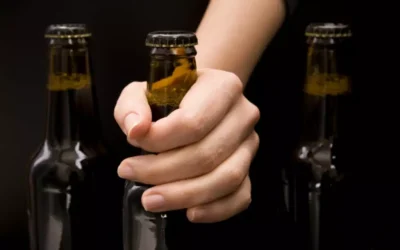The shame spiral of addiction: Negative self-conscious emotion and substance use PMC
Content
- New study finds a causal link between sexual activity early in life and major depressive disorder
- What is the Difference Between Guilt and Shame?
- How Shame Can Keep an Addict From Getting Help
- Understanding Shame Vs. Guilt
- Therapy that can Help People Confront Their Toxic Shame
- Understanding Guilt and Shame in Addiction Recovery
Eventually, work in genetics will yield simple interventions that adjust genes for those predisposed, and so on. If you think these interventions are already working, or might work, to arrest addiction, then you acknowledge that brain or genes cause of addiction. Concerning drug addiction, guilt and shame are very important. A person may suffer from some childhood trauma and seek substances to ease the pain of guilt. Eventually, the addiction will begin to hurt their loved ones. Generally, guilt causes addiction and addiction causes shame.
Can shame be addictive?
Shame can lead to addiction, and is the core feeling that leads to other symptoms in people with codependency. Here are a few of the other symptoms derived from shame: perfectionism. low self-esteem.
Participant privacy or use of data from a third party—those must be specified. Sherry Gaba, LCSW, is a licensed psychotherapist/author specializing in addictions, codependency, and underlying https://ecosoberhouse.com/ issues such as depression, trauma, and anxiety. Additional informed consent was obtained from all individual participants for whom identifying information is included in this article.
New study finds a causal link between sexual activity early in life and major depressive disorder
Shame is a powerful emotion that can crush your self-esteem and seriously affect your overall well-being. In some cases, feelings of shame become overwhelming, and people turn to drugs or alcohol as an escape. A systematic review of available scientific literature found that shame-proneness can lead to early-onset substance use, and young people may use substances to cope with negative feelings. Developing Positive Relationship Patterns and Communication Skills is an important factor in the process of healing from shame and guilt during outpatient addiction treatment. It involves learning effective communication skills that can help build positive relationships with others.

You can also lessen feelings of shame by focusing on the specific actions you have taken rather than judging your character as a whole. Instead of thinking ‘I am inadequate’, note the instances where you harmed others, accept responsibility for what happened, and make amends for what you have done. This process offers closure on the mistakes you made and promotes self-forgiveness.
What is the Difference Between Guilt and Shame?
The unconscious thought might be that “I’ll leave before you leave me.” Fear of success and failure may limit job performance and career options. Shame creates fears and anxieties that make relationships difficult, especially intimate ones. Many people sabotage themselves in work and relationships because of these fears. You aren’t assertive when shame causes you to be afraid to speak your mind, take a position, or express who you are. For people with codependency, shame can lead to control, caretaking, and dysfunctional, nonassertive communication. Often with the use of latent models one wonders about the adequacy of the sample of 110 with the number of paths established.
- Another suggestion is to seek support from a trusted therapist or friend who can provide objective feedback and guidance during this difficult process.
- But there’s a couple of other responses are interesting.
- Researcher Abilgail W. Batchelder and her colleagues utilized a sample of 110 sexual minority HIV positive men living in the San Francisco area who have been confirmed as using methamphetamines.
- Shame can lead to depression, paranoia, loneliness, and issues with recovery.
- Though it made great progress, it is not without limitations.
In other words, substance abuse creates much more shame, especially in someone struggling with shame issues. Violence, aggression as well as eating disorders are common causes of shame. Depending on how bad the levels of shame are, one may suffer mental problems, such as depression or substance abuse. Guilt can be a great motivator to do or say something to correct your past actions. Feeling guilty can cause you to apologize or drive you to make amends with someone that you hurt. This can help you become a better person and avoid making the same mistake in the future.
How Shame Can Keep an Addict From Getting Help
Nevertheless, one thing remains the same in every case — shame can deeply affect a person. It can make you feel like you’re a failure, unlovable or that you don’t deserve to be happy. It infiltrates your thoughts and makes you think you’re a bad person, or that you’re defective. The results of the present study highlighted the importance of assessing the presence of different shame-related experiences guilt and shame in recovery among addicted young adults. Clinicians should assess the ability to approach aversive emotional experiences and evaluate if people use a specific behavior or a substance to avoid these experiences. In a therapeutic context, the results emphasized the importance of reducing the tendency to avoid after an occurrence of a shameful experience, promoting its elaboration into the self-identity.
It’s a long-term process of learning new tools and ways to interact. It begins with family members understanding themselves, their patterns and reactivity, so they’re equipped for long-term work of healing — with the support of Allies in Recovery all along the way. A vast number of addicts move to another addiction when they stop the addiction they are in. Some of this can be attributed to genetic predisposition, but the more critical factor is internalized shame. Shame is an innate feeling that monitors our propensity towards avidity, especially our curiosity, interest, and pleasure. Shame also guards our privacy (acting as a covering for our physical and emotional decency).
Understanding Shame Vs. Guilt
Substance use is a significant and widespread health issue that can have many adverse effects for people who suffer from it. Due to their prevalence, it is increasingly important to understand why they develop and what mechanisms can help or hinder recovery. Shame and guilt are common emotions felt by people struggling with addiction. Shame and guilt are common in addiction as individuals may engage in behaviors that go against personal values and beliefs. It can also stem from the societal stigma surrounding addiction, making the person feel like they are morally wrong. What is being called the New Paradigm is directly saying the same thing.
Neuroscientists call this the gut brain, not meant to be disrespectful, it’s just what they call it. And the gut brain is activated around feelings of safety. So if they feel unsafe of my stomach will get activated. And people will oftentimes talk about this around shame. They, their their stomach hurts, they get acid, they have other digestive problems, etc.
Evolutionary scholars worry political trends are impeding progress in evolutionary psychology, according to new study
People with shame don’t believe they’ve necessarily done a single thing wrong – rather that there is something larger wrong with them. Shame can lead to depression, paranoia, loneliness, and issues with recovery. At Acqua Recovery, our addiction treatment center in Utah is proud to offer a pro-recovery environment that provides support and understanding as you work toward addiction recovery. We’ll help you communicate with both others and yourself more effectively, helping make better choices and achieve a better life.

Children quickly learn about money and experience shame if their family is low-income. And oftentimes, those tell us a lot more than what the person is thinking because I can ask somebody, they can be in an acute shame response. And if what we’re saying is true shame, is a freeze response. The last thing that somebody is going to be able to articulate is the shame they’re experiencing when they’re in it.
Persons enter the world valuing certain things and not others and they exit the same way. Some of these have to do with resource needs and acquisitive desires related to these needs – for food, clothing, and shelter; others have to do with social needs, with needs for company and affection. No person, no matter what her conception of flourishing or well-being would choose a life without friends, says Aristotle13. According to Strawson, these emotional dispositions come with the equipment. It is arational, part of our animal nature, not something we can give up. What we can do, however, in both the case of induction and the case of the suite of reactive attitudes is to adjust, moderate, modify, tune up and/or tune down as necessary both natural innate attitudes.
- The more this happens, the more we experience our identity as flawed and defective.
- Mentally, shame can make an individual develop dangerous thought patterns, leading to negative self-talk and feelings of unworthiness – this can contribute to depression, anxiety, and other mental health disorders.
- Dwelling on it and sitting in those toxic emotions only sets you up for a relapse.
- All procedures were approved by the Institutional Review Board for the University of California, San Francisco with reliance agreements from the University of Miami and Northwestern University.
- Often with the use of latent models one wonders about the adequacy of the sample of 110 with the number of paths established.
- Resilience, on the other hand, acts as a support system for individuals undergoing change or addiction recovery.
Within this muddled battlefield of emotions and deficiencies, addiction is created. Read this article to learn how guilt and shame can potentially create, feed and destroy addiction. Also, this article will teach the reader how to differentiate between guilt and shame. Lastly, this article will explore various methods of treatment used to deal with guilt and shame in addiction recovery. Shame forms in various ways and is influenced by different factors, including cultural and social norms, upbringing, past experiences, and personal beliefs.
Guilt often stems from moral conscience and can help us distinguish right from wrong. Researcher Abilgail W. Batchelder and her colleagues utilized a sample of 110 sexual minority HIV positive men living in the San Francisco area who have been confirmed as using methamphetamines. Subjects completed an assessment and then were reassessed at 3, 6, 12, and 15 months. Participants completed measures on demographics, health status, substance use, negative self-conscious emotion, positive emotion, and depressive symptoms. Many people who struggle with addiction feel a lot of guilt and shame over their use.
